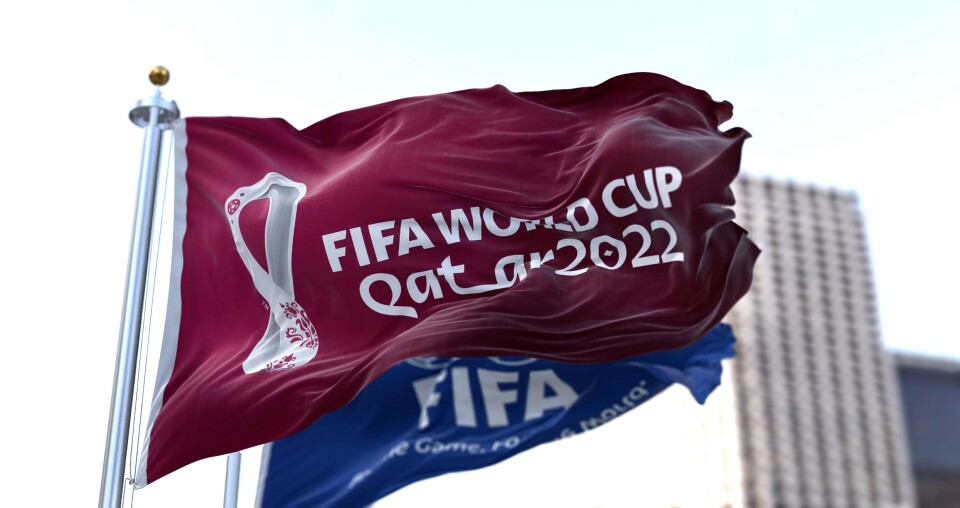-
Germany to prolong EU border checks: how travel from France is affected
Checks at land borders will take place until at least September 15, 2026
-
Floods in France: emergency measures underway amid ‘historic’ conditions
Gironde, Lot-et-Garonne and Maine-et-Loire among worst-hit with red warnings in place
-
Mardi Gras: 12 traditional carnival sweet treats to try in France
Gaufres, bugnes, merveilles and more
Qatar 2022: President Macron says ‘sport should not be politicised’
The president responded to criticism about a possible visit to the World Cup. It comes as France warns spectators about phone spying in the emirate

President Emmanuel Macron has said that “sport should not be politicised”, as he responds to criticism over a possible visit to Qatar, the controversial host of the football World Cup 2022.
Mr Macron said that “politicising sport is a very bad idea”, in response to weeks-long speculation over whether he would travel to the emirate during the tournament.
It has finally been decided that he will visit if the French team qualifies for the semi-finals. The World Cup is set to take place in Qatar from November 20 to December 18.
The president issued his response to the controversy on Thursday (November 17), at a press conference during his current visit to Thailand. He suggested that the time for highlighting issues was before Qatar had been awarded the World Cup in the first place.
He said: “These questions must be asked when we are awarding these events. Whether the question is about climate or human rights, we cannot keep asking the same questions each time, once the event is happening.”
‘Frank, friendly and constructive relationship with Qatar’
Mr Macron added: “I am always speaking to Qatar, on all subjects. We have a frank, friendly, and constructive relationship.”
The president’s comments about not politicising sport also come ahead of the next Olympics and Paralympic Games, which are set to be held in Paris in 2024.
He said: “I don’t know in which geopolitical context the Olympic Games will be held but I am sure that the point of these major events is to enable athletes from all countries, and sometimes from countries at war, to make sport come alive.
“And also, via sport, find ways to debate things which people are no longer able to talk about.”
However, in October, many major French towns said that they would not screen or support the World Cup, with some mayors calling the emirate an “aberration” from a human rights, environmental, sporting perspective.
Read more: Major cities in France refuse to screen or support Qatar World Cup
Advice for people travelling to Qatar: ‘Use another phone’
It comes as controversy builds around Qatar, mainly due to its environmental and human rights records.
A number of people are known to have died during construction work linked to the World Cup. Qatar has put the total at 37, while The Guardian reported in 2021 that it was at least 6,500.
French freedom and technology authority la Cnil (La Commission nationale de l’informatique et des libertés) has called on people from France not to take their usual smartphones if attending the event, due to the risk of spying when in the emirate.
More than 10,000 supporters from France are expected to travel to Qatar for the matches.
In a statement, the Cnil said: “Ideally, travel with a new smartphone or an old one that has been wiped and restarted.”
The authority has said that people travelling to Qatar will be required to download two apps before entering the country, including Hayya, the official World Cup app, and Ehteraz, for Covid-19 compliance.
However, the Cnil said that these apps include spying features and are used by the Qatari authorities to gather personal data. It enables them to read, delete, or change content and even to monitor calls, the authority said.
For those who are unable to travel with another phone, it recommended that people from France only install these apps before leaving for the event and delete them as soon as they return to France.
It also advised travellers to “limit online connection to websites requiring a login to a strict minimum”, and to only connect to secure WiFi services. People are also advised to keep their smartphone on them at all times and to use a strong passcode.
The Cnil also advised travellers to be aware of any files or images stored on their phone that could break Qatari law. It said: “Particular attention should be paid to photos, videos, or digital files that could put you in difficulty with the legislation of the country being visited.”
This includes LBGTQIA+ content, which is still banned in Qatar. It is also illegal to take photos of or film government buildings, schools or religious buildings.
Related articles
World Cup, spending power, NATO: This week in French politics
























